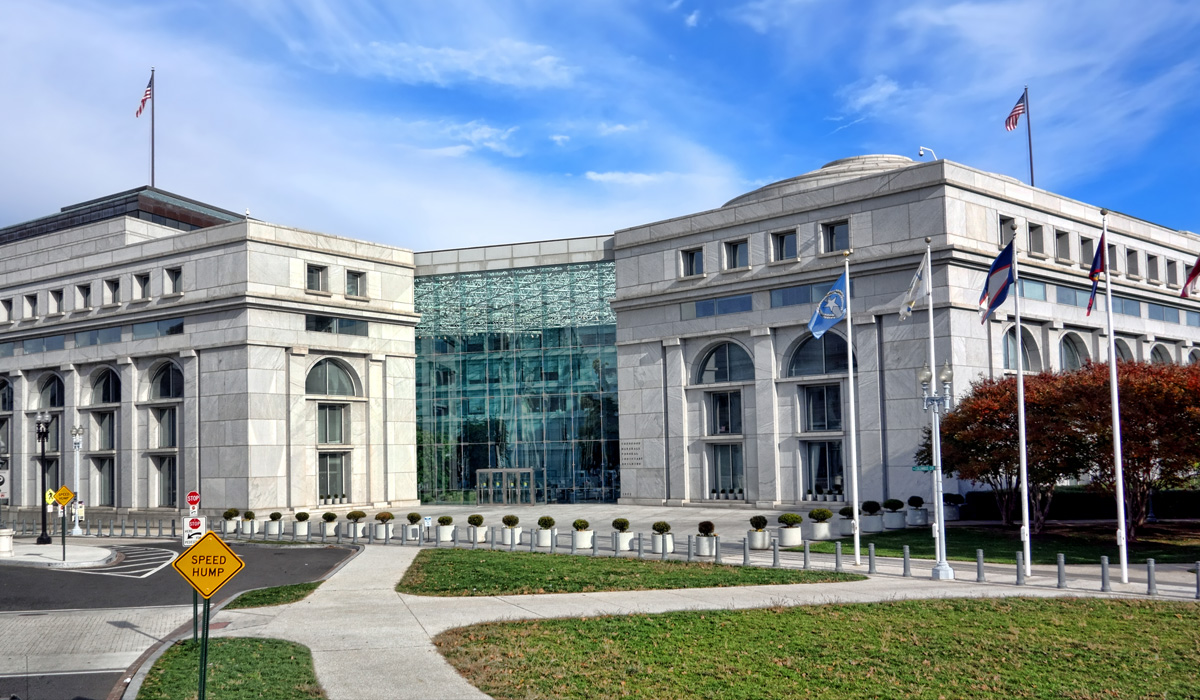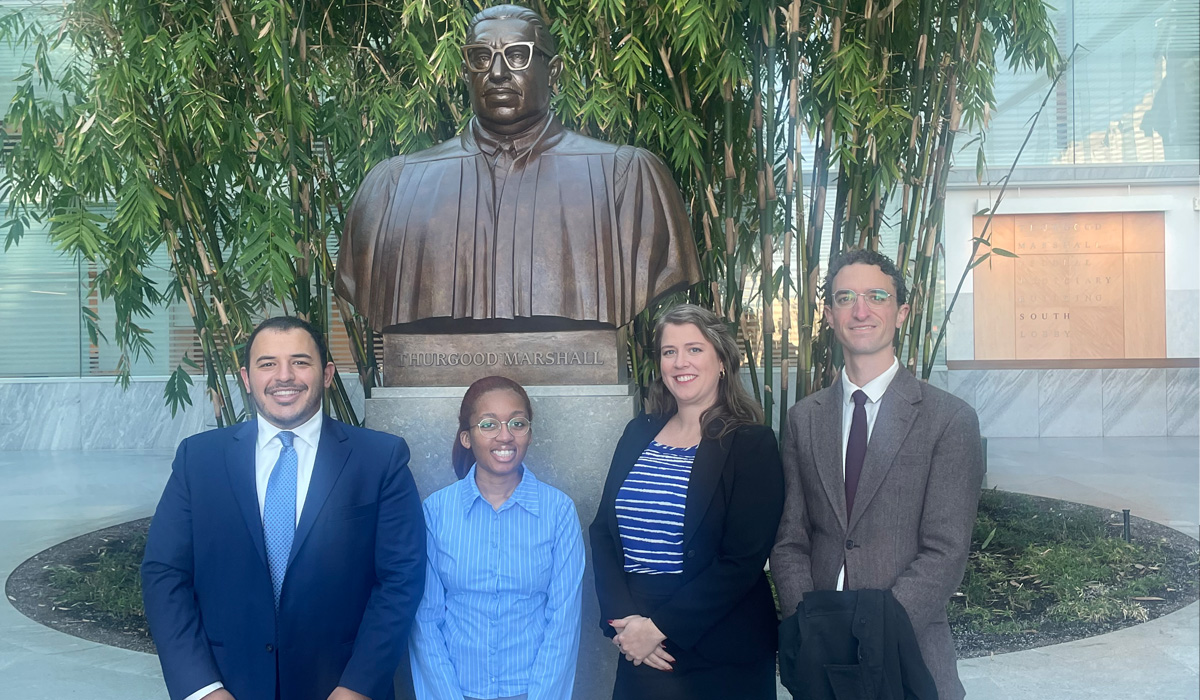
Thurgood Marshall Federal Judiciary Building
On Thursday, October 10, 2024, the Judicial Conference of the United States’ Advisory Committee on Civil Rules held its annual, full-day public meeting at the Administrative Office of the U.S. Courts in the Thurgood Marshall Federal Judiciary Building across from Union Station in Washington, DC.
A group of 12 second- and third-year law students from Catholic Law had the unique opportunity to observe the high-level committee in action and also interact with some of its distinguished members and staff during breaks throughout the day. Most law students, indeed most practicing lawyers, never get to see how the Federal Rules of Civil Procedure are created and amended over time. The law students were accompanied by Professor Derek A. Webb who, previously served as an Attorney Advisor for the committee and is now teaching civil procedure to 1Ls at Catholic Law. The committee is made up of prominent federal judges, state supreme court justices, legal practitioners, and law professors from around the country.
The Advisory Committee reviewed and discussed a number of topics, including third party litigation funding, remote (video) testimony at trial, corporate disclosure rules to aid judicial recusal decisions, preserving one’s right to a jury trial when a case is removed from state to federal court, and whether a plaintiff may dismiss an individual “claim” against a defendant, in the context of a rule that permits the plaintiff to dismiss an “action.”
The Judicial Conference is the policy-making body for federal courts, charged by the Supreme Court with considering administrative and policy issues affecting the federal court system and making recommendations to Congress in regard to legislation involving the Judicial Branch.
Kierra Giarrusso (2L) remarked, “Observing the Civil Rules Advisory Committee engage in discussion and debate was an extraordinary learning experience. Attending the meeting offered us a unique behind-the-scenes glimpse into the individuals and processes shaping the Federal Rules of Civil Procedure, providing valuable context for the rule changes.” Joseph Hill (3L) noted, “It was fascinating to witness how significant modifications to the Federal Rules are made.” Joseph Lopes (3L) added, “I was captivated as judges and other experts passionately discussed the importance of verb tense for pro se litigants, the nuanced meanings of phrases like 'party opposing the claim' and 'the opposing party,’ as well as the precise definition of 'action' in Rule 41.”
Ian Homan (2L) summarized his experience this way: “It was an absolute pleasure attending the Rules Advisory Committee where I got to observe various jurists engage in thoughtful deliberations over potential alterations to the Federal Rules of Civil Procedure… I found the experience to be completely worth the time and recommend that other law students attend the committee if they ever have the chance.”

Four students from Catholic Law attend Civil Rules Advisory Committee Meeting at Thurgood Marshall Building
Background from the U.S. Courts website:
The Supreme Court first established a rules advisory committee in June 1935 to help draft the Federal Rules of Civil Procedure, which took effect in 1938. Today, Advisory Committees on the Rules of Appellate, Bankruptcy, Civil, Criminal Procedure, and the Rules of Evidence carry on a continuous study of the rules and recommend changes to the Judicial Conference through a Standing Committee on Rules of Practice and Procedure.
The Chief Justice appoints the committee members whose terms are limited to no more than six years. Committee members receive no payment for their service. Unlike other Judicial Conference committees, the rules committees include not only federal judges, but also practicing lawyers, law professors, state chief justices, and high-level officials from the Department of Justice and federal public defender organizations.
Each committee also relies heavily on the services of its "reporter." The reporters are prominent law professors, who are the leading experts in their respective fields. Each has been appointed by the Chief Justice. The reporters research the relevant law and draft memoranda analyzing suggested rule changes, develop proposed drafts of rules for committee consideration, review and summarize public comments on proposed amendments, and generate the committee notes and other materials documenting the rules committees' work.
